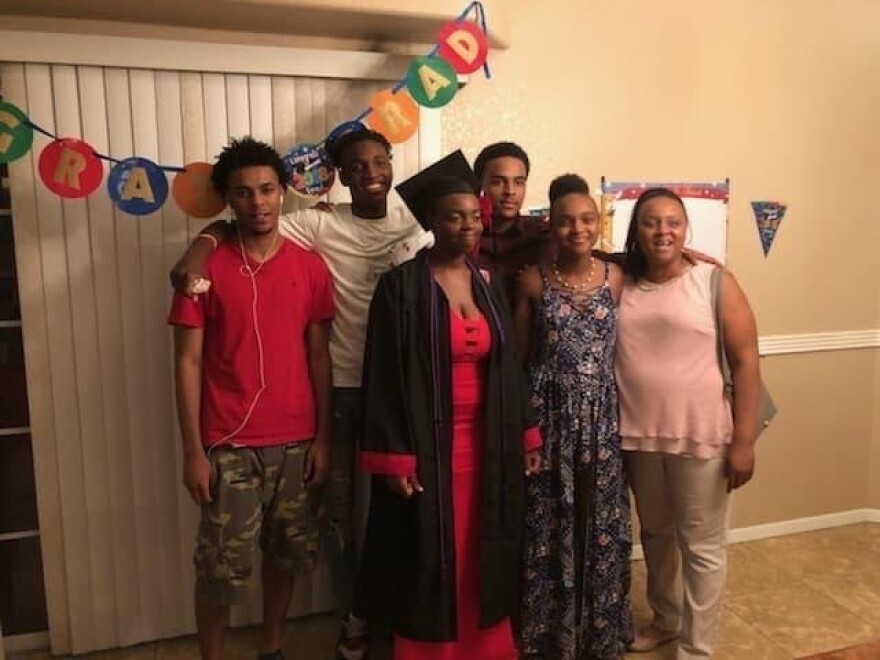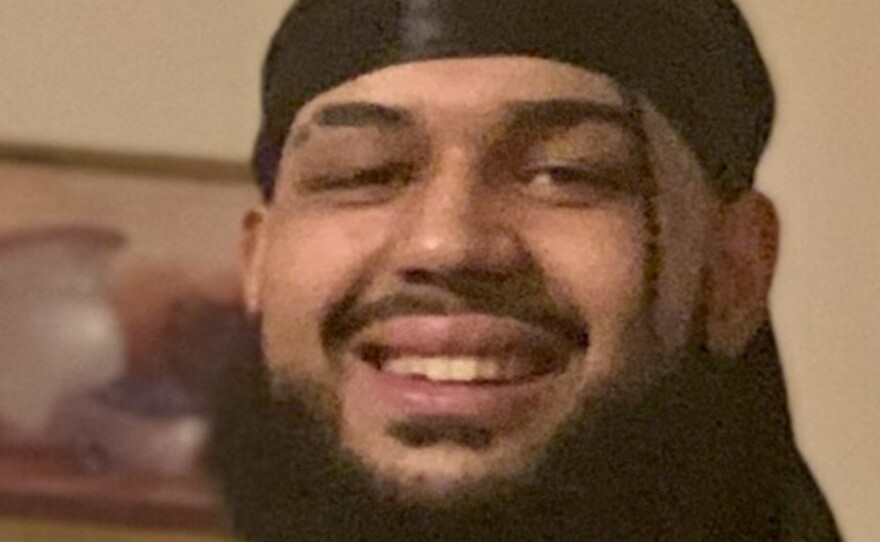Orlando Taylor III, 23, of Springfield and Miguel Estrella, 22, of Pittsfield — both men of color — were killed in separate incidents by western Massachusetts police this year.
At the time of the shootings, each was in the midst of a mental health crisis.
Both police departments work with mental health professionals, known as co-responders, to help people in crisis. But at the time of the shootings, none were on duty.
'Gone off-duty several minutes before that call was received'
Co-responders work for mental health agencies, but they collaborate with police. Western Massachusetts has about 20 co-response clinicians. One works in Pittsfield. Up until recently, the department had two.
Police Chief Michael Wynn said he wants more.
“We would like to have a co-responder available and on duty every minute of every day,” he said.
Wynn’s officers respond to hundreds of calls a day. Several per shift, he said, would benefit from a “co-response."

But on the night Miguel Estrella was shot, the mental health professional had clocked out.
“There was a co-responder on earlier that evening, who had already overstayed at the end of their scheduled shift and had gone off-duty several minutes before that call was received," Wynn said.
The Brien Center, which provides co-responders to Pittsfield, would not comment about the night of the shooting, but would talk more generally about their work.
Becca Phelps-Smith, director of emergency services at Brien, said police first make sure the scene is safe. Then the clinician evaluates the person who is distressed.
"Are they making eye contact or are they restless? Are they pacing? And we're asking them questions about their sleep, their appetite," she said.
The clinician will also assess whether the individual is thinking about hurting themselves.
If the co-responder decides an individual needs a higher level of care, they may be taken to a hospital. But more often, the clinician devises a safety plan, including follow-up.
A goal of de-escalation
Jennifer LaRoche is vice president of acute and day programs at Clinical & Support Options. CSO provides six co-responders to 15 communities in Franklin and Hampshire counties.
LaRoche said getting people to talk takes time, but police typically want to resolve things quickly.
She recalled a case when someone needed to be brought to the hospital.
"The person ended up leaving without any incident, going into the ambulance without any problem. No hands-on. No show of force in any way," LaRoche said. "But that call took about an hour to clear. And from my point of view, an hour with a good outcome is better than 5 minutes with a bad outcome."
Kathy Mague is with Behavioral Health Network, which has eleven clinicians working with police in Hampshire and Hampden counties, including Springfield.

Mague supports a multilayered approach with co-responders, peers from the community, officers trained in crisis intervention and follow-up services. She said an officer trained in crisis intervention and a clinician will approach an individual in crisis not with force, but with curiosity and caution.
"The officer is watching for safety," she said. "And the co-response clinician’s radar is usually more up around what strategies might be employed to connect with that individual, help them feel heard and give them an out. If they feel trapped or confronted or without options, that tends to escalate the situation."
Mague said if the person is holding a knife or a box cutter and is a safe distance away, the strategy is similar.
"'Seems like you're really upset today,'' Mague said she might tell the person in crisis. "'What do you got in your hand there? What were you planning to do with that? Can you put that down for a couple of minutes so we can have a conversation?' So, we use those strategies, whether there's a weapon involved, but certainly not if there's a gun."
Sometimes it’s just too dangerous for a co-responder.
'Constantly assessing for safety'
Clinical social worker Ariel Ramirez collaborates with police in Pittsfield. She was the therapist whose shift ended shortly before Estrella was shot.
Speaking for herself and not the police department or the Brien Center, Ramirez said a key part of the work happens through discussion with officers after they’re back at the station.
“‘Hey, I saw this. Why did we do that this way, this time?’ And vice versa. So, we will get to the end of a call and many times officers will say, ‘What were you thinking when they did this?’” Ramirez said.
An information swap, she said, builds rapport and safety.
"There has to be this unspoken working relationship where you can almost understand where you're both at without a whole lot of verbal communication. And that's what it comes down to in those moments, is they'll look for how comfortable I am. I'll look for how comfortable they are, constantly assessing for safety," Ramirez said.
Taking phone calls 'in the middle of the night'
Co-responders are reducing the load on emergency rooms by evaluating people in their homes. Great Barrington Police Chief Paul Storti said, historically, police would often have to bring someone to the hospital, sometimes involuntarily.

“That ties up an ambulance, that ties up the hospital and all those resources and the time of the officers," Storti said. "Where now we have somebody who can either do it on scene or in house and we get that situation resolved.”
Storti, whose department shares one co-responder with several other towns, said he could use more. But the co-responder from the Brien Center makes herself available to Great Barrington when she is not on shift.
"We're really, really happy with with her availability, her willingness to answer questions, take our phone calls — sometimes in the middle of the night. We try not to bother her in the middle of the night, but sometimes, you know, we can't. And she's been great." Storti said.
She has even FaceTimed into a scene to put eyes on an individual and determine next steps.
A shortage of clinicians
A 2022 report from the Massachusetts Department or Public Health noted that research estimated 7-10% of police calls involved a person dealing with a mental health crisis, but said this was "widely considered an under-representation."
When a co-responder is not on duty, police handle things on their own. Or they call 24/7 crisis emergency services, where they can get advice or drop someone off for an evaluation. Emergency services can sometimes send a crisis clinician. But not always.
Phelps-Smith said there’s a shortage of masters-level clinicians applying for co-responder jobs.
“People see it as it could be a dangerous job. We are seeing people in the worst days of their life," she said. "We are involved in a lot of situations that can be quite difficult and traumatic for us. And then also the — the pay.”
The annual salaries in western Massachusetts range from about $45,000 to $60,000.
Police and mental health agencies are actively pursuing grants from the Department of Mental Health and posting new positions for co-responders. But — beyond the pay scale — there are other reasons some clinicians may not apply.
"There may be an ethical issue for working within a police department in a co-response model for some social workers," said Rebekah Gewirtz, executive director of the Massachusetts chapter of the National Association of Social Workers.
'A well-intentioned mistake'
Gewirtz said many of her members want an alternative response, like Amherst and Northampton are working towards.
"Where teams of social workers and community health workers and peer support specialists would be dispatched during emergency situations to appropriately respond to mental health crises," Gewirtz said.
Michael Hitchcock from the nonprofit Roots & Dreams and Mustard Seeds is working in Pittsfield to empower vulnerable communities. He calls co-response "a well-intentioned mistake," and wants an unarmed approach, independent of police,
“And it should be made of members of the community which can include affluent college-educated social workers as much as it can include somebody pulling a shift after their job at McDonalds. It should be representative of the community," he said. "Multiracial, multicultural, multilingual.”
Hitchcock said when co-responders work with police, police make the decisions and control the situation.
Rebekah Gewirtz said there is a lesson from the police shootings of Orlando Taylor in Springfield and Miguel Estrella in Pittsfield.
"A response to a mental health crisis should not be met with force," she said. "A response to a mental health crisis should be met with help."
But help is in short supply. Not only are there few qualified applicants for co-response jobs, many settings are struggling to hire mental health professionals to provide routine care — which could stave off crises.
Hampden District Attorney, Anthony Gulluni, found the officer’s shooting of Orlando Taylor “reasonable and unavoidable.”
The shooting of Miguel Estrella is still under investigation by Berkshire DA Andrea Harrington, who said she’ll share her findings first with his family.






